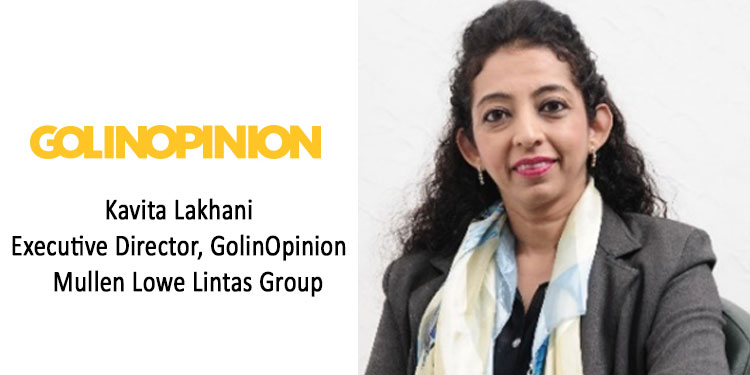Disease or death by starvation? This is a stark choice facing millions of people across the globe. Governments are faced with difficult trade-offs between protecting lives and protecting livelihoods. Restarting India means people will die. So when should they do it? This is a moment of reckoning for our approach to economic and social policy. How should brands respond to this moment? I think they will need to have clarity of brand, clarity of purpose, and leadership.
How can agencies think of communication frameworks that offer more purpose-driven, humane solutions? One way would be to ensure that campaigns are derived from broad understandings of the customer needs juxtaposed against the economic and social context, rather than from rigid disciplinary perspectives.
With the shift in the industry from ‘digital marketing’ to marketing for a digital world, the pendulum seems to be swinging back towards the re-bundling of services. A new set of rules has come into play along with a requirement for agencies to embrace new channels and consumer behaviors, assimilate new skillsets, and ditch their reliance on tried and tested marketing orthodoxies.
I think in the overall market marketers are getting quite tired of going to many, many partners and having to hold the brand together. With COVID-19 cases growing worldwide, business leaders are scrambling to deal with a wide variety of problems, from slumping sales and stalling supply chains to keeping employees healthy and making sure they can continue working. At this moment, businesses need to know that marketing spend is driving immediate results.
Given that the current crisis has severely dented revenues, clients will actively move their business to an agency partner that delivers the most integrated, impactful, and cost-effective solutions to reach their customers across touchpoints. One of the key things companies will now demand is that all the communication discipline actually ideate together and execute seamlessly. That will make a very, very big difference.
Agencies will struggle to re-invent and re-structure themselves to keep pace with the increasingly commoditized demands of client teams and CMOs under pressure. Many agencies say that they have these different services and offer all the services through integrated communication plans. However, I think the true challenge at the heart of ‘bundling’ is bringing all those people together to produce more creativity.
Agency integration has been talked about for years. Now, new pressures will drive agencies toward actually doing something about it. COVID-19 is going to accelerate the move, which is part of a wider industry shift, which will see agencies no longer “defined by silos”.
The definition of the modern agency now and in the future is going to be the best cross-section of agency talent working on a client business model. In a couple of years, calling an agency, an advertising or digital agency or a PR agency will sound completely old school.
I feel the time has come for agencies to bundle creative, PR, digital, and media – there is a term that we have for this at Lintas, which is ‘hyper bundling’. The important distinction is that it’s not just about the integration of disciplines. It is integration to produce ‘effective creativity’ – read a tangible difference to the client’s bottom line. Whether it’s defying category norms, breaking conventions, talking to an audience in a new way or across new channels; whether it’s changing behaviors through innovation, doing something that’s never been done before or even challenging the client’s brief – this way of thinking gets us to our most creative, exciting and effective work. The hyper bundling approach ensures we deliver ideas that maximize the opportunity for the brand as a whole, and never just one channel.
Attention is the most competed-for currency in the 21st century, and as customers and brands begin to hesitatingly emerge from lockdown, it will be even more so! The role of technology, the influx of data, the importance of content is all effects that enforce constant change, and the ability to remain agile. Agencies will need to operate with a start-up mindset: all digital natives, incredibly multi-cultural, they will need to display they are hungry to invent the future of brands through intelligent collaboration. Agencies that will succeed will be those that focus on giving clients’ brands an unfair share of attention – both conscious and unconscious attention – that far exceeds their market share, their budget, their penetration, and their distribution.
Authored by Kavita Lakhani, Executive Director, GolinOpinion – Mullen Lowe Lintas Group.















